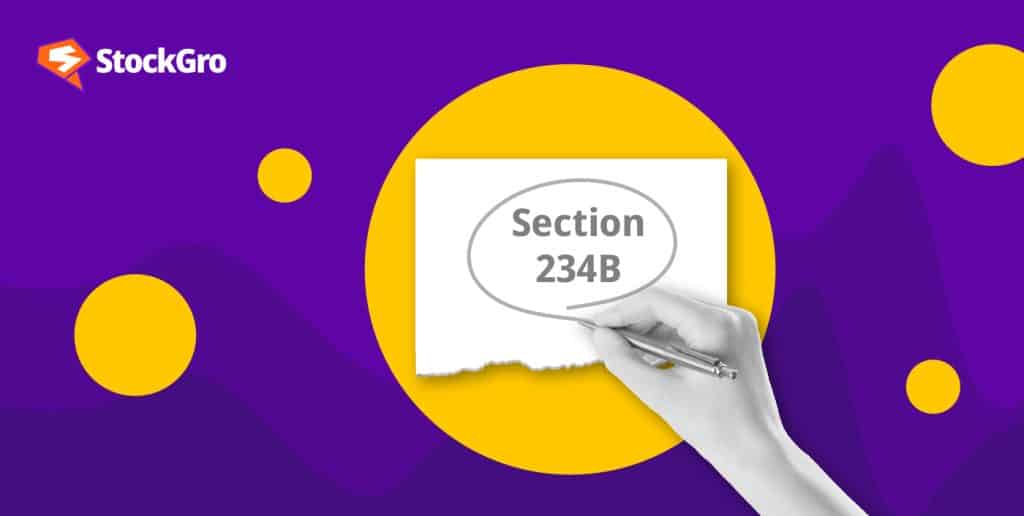
In this article, we’re going to dive deep into what advance taxes are, how and why they’re paid, and how Section 234B is applied to tax-paying individuals in this case. We will also understand what makes you eligible for such taxes, and the penalties applicable to you if you fail to make these payments on time.
Understanding advance taxes
The Indian income tax system works on a ‘pay-as-you-earn’ principle, which means that you’re expected to pay taxes on your income throughout the financial year on your estimated income for that year. Advance taxes, in this context, is a mechanism used to fulfil this procedural obligation.
There are several advantages to paying advance taxes on your income throughout the year. Not only does this reduce your tax burden as April nears, but you also avoid penalties that come with not paying your taxes on time.
Failing to pay a minimum amount of advance tax can attract interest and penalties under Sections 234A, 234B, and 234C of the Income Tax Act.
Is it necessary to pay advance taxes?
While all companies, regardless of their tax liability, are obligated to pay advance taxes, only those individuals pay advance taxes wherein their estimated tax liability for the year (excluding TDS) is likely to exceed ₹10,000.
This ₹10,000 amount is calculated after the deduction of TDS / TCS applicable. Typical assessees, hence, include salaried employees, self-employed professionals, self-employed businesses, companies, partnership firms, taxpayers opting for presumptive tax schemes, and so on.
Senior citizens (those with more than 60 years of age), however, with no income under the head ‘Income From Business and Profession’ are exempt from advance taxes.
CTA: Capital gains tax overview types and current rates
Section 234B of the Income Tax Act for default in Payment of Advance Tax
There are three scenarios in which you are liable to pay interest payments on default of advance taxes:
- When you fail to pay taxes even though you are liable to;
- When you pay advance taxes but pay less than 90% of the assessed tax;
This interest is levied at 1% per month or part of the month. The nature of this interest is simple interest.
Additionally, this interest under Section 234B is levied from the first day of the assessment year till the date of a regular assessment or an assessment under Section 143 (1).
CTA: GST Integrated Goods and Services Tax
Example
Let’s say your estimated tax liability for the financial year 2023-24 is ₹50,000. You paid a total of ₹40,000 advance tax throughout the year (including TDS). This falls short of the 90% threshold (₹45,000).
Shortfall amount = ₹50,000 (Tax Liability) – ₹40,000 (Advance Tax Paid) = ₹10,000
Interest period (assuming payment on July 15th, 2024) = April 1st, 2024 – July 15th, 2024 (3.5 months)
Interest = ₹10,000 (Shortfall) * 1% (Monthly Rate) * 3.5 (Months) = ₹350
Frequently Asked Questions
What if my income is variable throughout the year? Can I revise my advance tax liability?
Yes, you can revise your estimated tax liability throughout the year based on your income flow. The revised estimate can be used to calculate the remaining advance tax instalments according to your specific scenario. In case there are any other specific nuances pertaining to your income tax liability, we encourage you to consult a tax professional.
Can I avoid paying advance tax altogether if my income is below the threshold (₹10,000) in a particular year?
Yes, if your estimated tax liability for the year is likely to be below ₹10,000, you’re not obligated to pay advance tax. However, you’ll still need to file your income tax return by the due date.
What happens if I pay more advance tax than my actual tax liability?
Any excess advance tax paid is refunded when you file your income tax return. The process and timelines for receiving the refund can vary depending on the mode of payment and verification procedures.
What happens if I miss an advance tax instalment due date?
Missing an instalment due date won’t attract interest under Section 234B immediately. However, you’ll be liable for a penalty under Section 234C calculated from the due date of the missed instalment. To avoid both penalties and interest, it’s crucial to pay the missed instalment as soon as possible
Can I carry forward any excess advance tax paid from a previous year?
No, advance tax paid in a particular financial year cannot be carried forward and adjusted against the tax liability of the subsequent year. Each year’s advance tax obligation is independent and based on the estimated income for that specific year.
